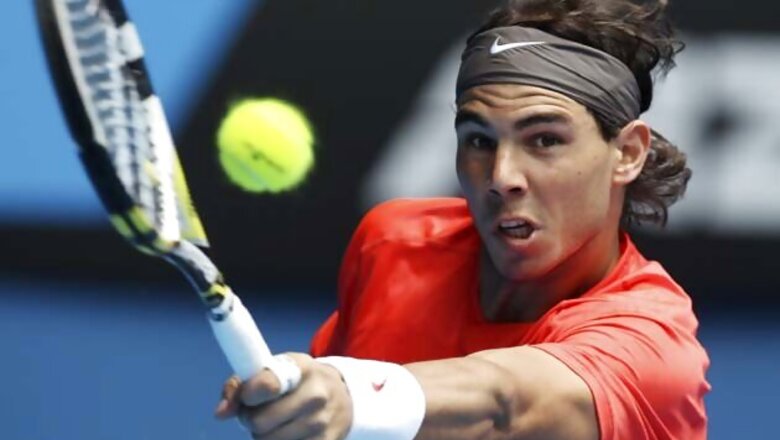
views
Rafael Nadal says the decision to destroy the evidence in the Operation Puerto doping case is "a mistake." "My opinion is that the ruling wasn't positive for anyone," the tennis great said on Friday. "The only ones that benefited were the ones who cheated. The ones that are hurt are Spanish athletes and sports in general."
In the verdict on Tuesday, the doctor at the heart of the doping ring, Eufemiano Fuentes, was found guilty and given a one-year suspended sentence for endangering the health of cyclists through blood doping.
Judge Julia Santamaria then cited privacy laws when ordering that the more than 100 blood bags seized by police seven years ago be destroyed. That meant anti-doping authorities cannot examine the evidence to try and identify more athletes who Fuentes helped to dope.
The judge's decision has been widely criticized by anti-doping organizations, who are looking at appealing. "The image this transmits to the world isn't the one we were hoping for," Nadal said. "I think it is a mistake that the names (of Fuentes' clients) are not known, but that is what happened. We will keep working so that sports stays clean and this doesn't happen again in the future."
Fuentes said during the trial that he had doping clients from sports other than cycling, but he was not asked by the judge to name them. Only a handful of cyclists have been identified as having doped with Fuentes.
Also on Friday, the president of Spain's Olympic Committee, Alejandro Blanco, said Operation Puerto had been "a mistake and a horror" for Spanish sports. "We have a judicial process that lasted seven years, which is the life span of a professional athlete," Blanco said. "That doesn't happen in any other country in the world and we must change it.
"We can't have a judicial process that lasts seven years and not know who was behind it all."
Madrid is competing with Istanbul and Tokyo for the right to host the 2020 Summer Games. Its tarnished reputation on fighting doping has hurt its previous two bids.
When police began the Puerto investigation in 2006, doping was not illegal in Spain, leaving prosecutors to seek charges under public health laws. The country has since passed anti-doping legislation.


















Comments
0 comment